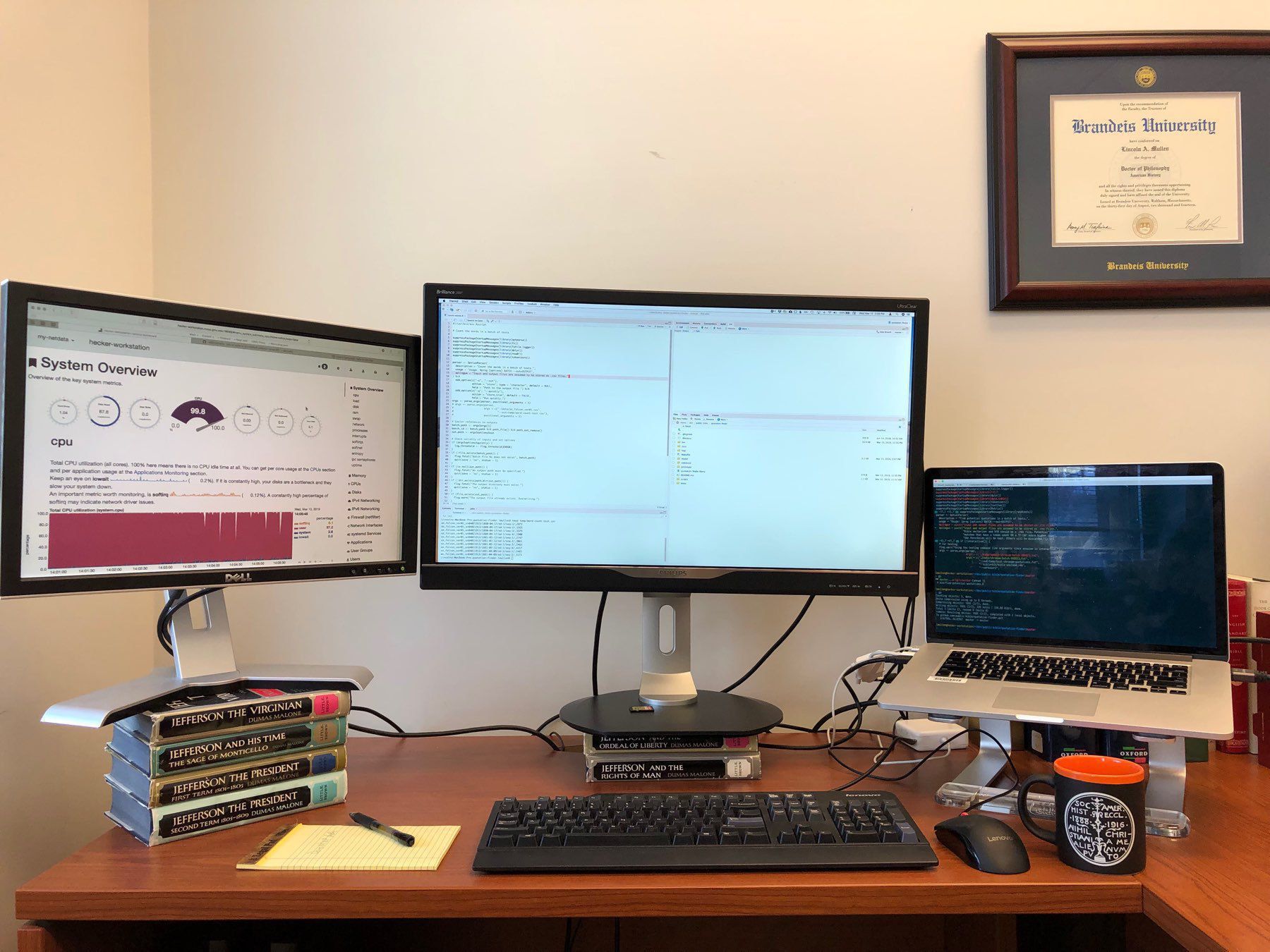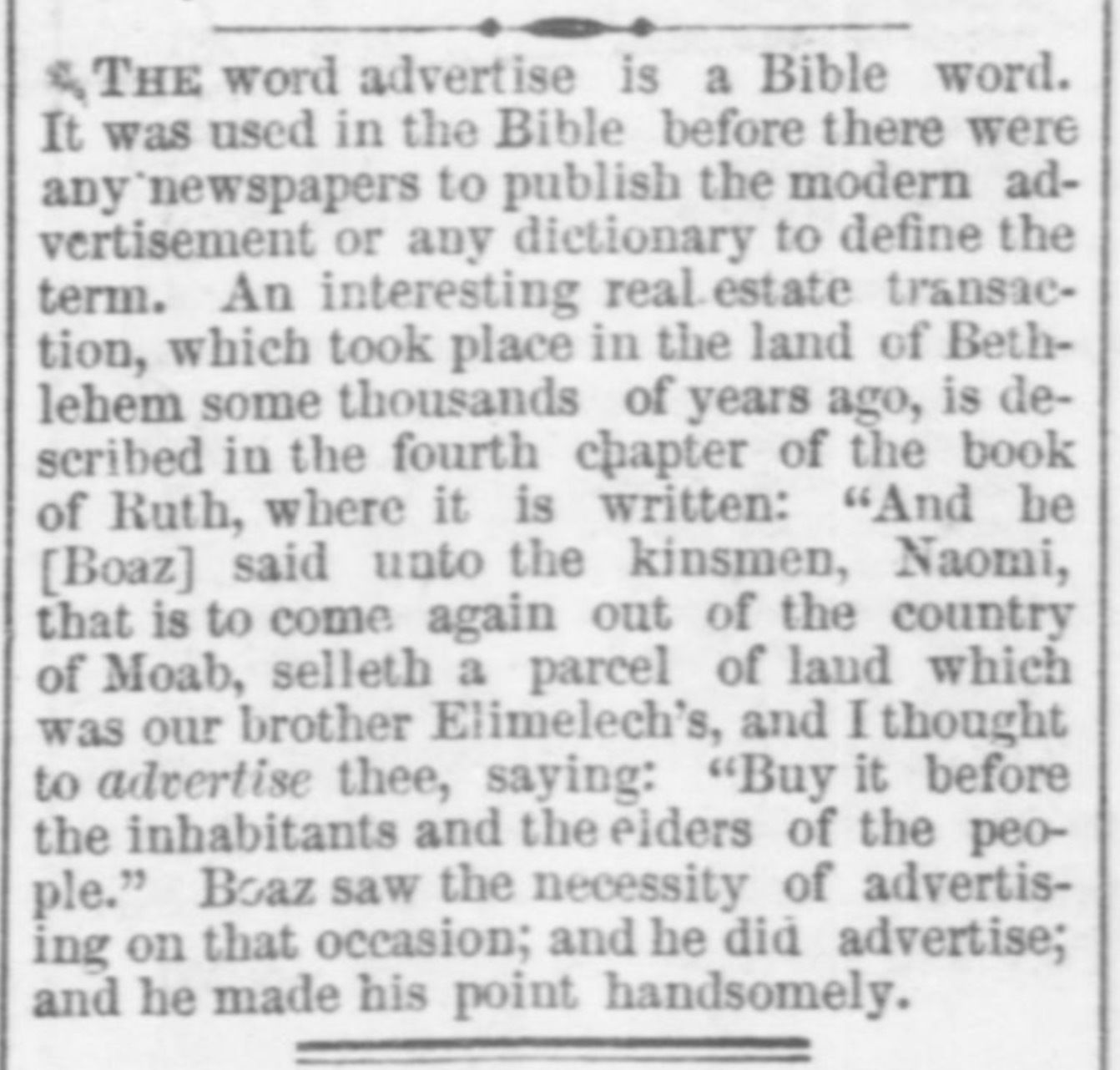How many monitors does a person need? Answer: Just one more.

How many monitors does a person need? Answer: Just one more.

Looking forward to having ten historians representing eight projects come this Friday to RRCHNM’s workshops on Model Articles for Digital History, in connection with the Journal of Social History.
How a team of researchers is “Detecting Footnotes in 32 million pages of ECCO.” That’s published in the Journal of Cultural Analytics, which has really been knocking it out of the park recently.
The workshop on quantitative history that Chad Gaffield and Ian Milligan hosted this past week at the Fields Institute was probably the most pleasant and productive academic event I’ve been to. It felt like a key moment in the field of computational history.
There are lies, damn lies, and text messages from United saying they “value your time.”
Amazon is serving me ads that say “Make this your holiest Lent." So I guess targeted advertising isn’t all bad? 🤔
My colleague Mills Kelly on his work tracing the history of the Appalachian Trail, starting here in Virginia.
Now that my department’s two job searches are over I feel like I can get this semester and my life back in order. [Checks calendar and sees that he is taking two trips and hosting two events in the next four weeks.] 🤦♂️
Some of my colleagues are deeply gifted at commenting on draft work, and I always feel inadequate to return the favor when I comment on theirs.
Gimlet Media didn’t make podcasting, but they certainly helped popularize it. Now with their acquisition by Spotify, they will help paywall it. It’s a shame, but it is also a trajectory which was predictable from the first episodes of the Startup podcast. Like so many internet companies, the tie to venture capital meant that it wasn’t enough to make money, even serious money, as Gimlet obviously did. It had to make VC-sized returns and be acquired for a VC-sized payout.
Emma Green reviewing Jemar Tisby’s The Color of Compromise:
Fifty-five years after the passage of the Civil Rights Act, and 154 years after the end of slavery, it is true that racial dynamics are different in America, and within the American church. Still, the patterns of history, and the tug of moderation, remain the same. That’s where this book offers value: Tisby is the rare writer on race who could have impact in rooms where progressive consensus cannot be assumed.
Both Happy Feet and Smallfoot have the same religious plot elements—plot elements that could have been written by a high schooler who has discovered Tom Paine and who likes to rail against “priestcraft” on Reddit.
Nashville Union and American, 11 May 1875.

Went looking for the PDF of my book which had gone missing. It was in the directory “Desktop > ZZZ to file > Unlikely to read” where it belongs.
Had my customary start of the semester spat with the copy machine. If copiers were the dominant machine of my era, my reputation as the guy in the department who can’t work the technology and refuses to learn would be legendary.
Syllabus for “Computational History.”
Semi-annual shoutout to Caleb McDaniel’s Generic Syllabus Maker.
Draft syllabus for Global History of Christianity.
Incredible that a five hundred page reader in the history of Christianity can contain exactly two pages on Pentecostalism.
Robin Jensen’s new history of The Cross is an addition to my syllabus this semester. It’s my attempt to give the class more focus by adding a common theme across the centuries, while also extending the class into areas like art that aren’t my strength. It’s always an open question how well a new book will teach.

People, let me plead with you: your academic event does not need to be longer than one day. Unless you are an international scholarly society, in which case you can have a day and a half.
“Sufficient unto the day is the evil thereof” should have been my auto-reply when trying to schedule all the things this semester.
Grant submitted. That makes three this academic year so far.
I’ve only been using Notion for about a week, but my cautious, reserved opinion is that it is #$@&% incredible. It seems to be the perfect combination of wiki, plain text, lightweight database, web/Mac/iOS app, and privacy and sharing that I’ve wanted for a long time. I generally don’t want to trust anyone to keep my data available, but the export options seem legit, and even the subscription price can be viewed as a way to make sure the platform sticks around. We’ll see.
At ASCH in Chicago, I was on a panel with Shirley Mullen, whom I had never met. After a few minutes talking we learned that we were related through my great-grandfather, Stillman Mullen. I also learned that the association my great-grandfather was a part of in Aroostook County, Maine—the Reformed Baptist Alliance—had that name not because it was theologically Reformed, but because they were Arminians reforming their fellow Baptists’ Calvinism. Go figure. This fits with the family Arminianism passed down via my great-grandfather, grandfather, and father—all Baptist pastors.